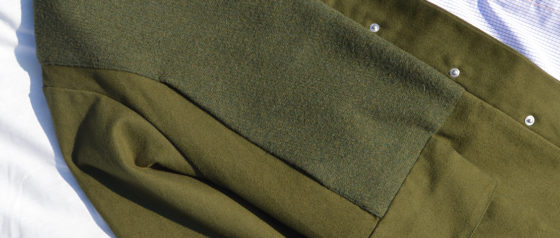Promoting the circular economy: from textile waste collection to recycling into chemical feedstock (RESYNTEX)
David Tyler
RESYNTEX was the first European wide initiative that integrates the whole value chain from textile waste collection to recycling into chemical feedstock
The concept of RESYNTEX was to demonstrate an efficient industrial symbiosis between textile waste producers/collectors and the chemical/biotechnological/pulp & paper/energy industry. It involved a large–scale cascading approach from textile waste recovery and sorting, followed by natural and synthetic fibres recovery and transformation into new feedstock (protein hydrolisate and cellulose in solution from natural fibres, polyamide and polyester building blocks from synthetic fibres). This was a novel circular economy concept that included the whole value chain of organisations (public authorities, collectors, recyclers, process designers, industrial transformers and users. RESYNTEX addressed the recycling rate issue through two combined aspects: • To provide new valorisation routes for textile waste (e.g. transformation into high value and more competitive feedstock for chemical industries); • To integrate the whole value chain, demonstrate a realistic circular economy example with a good business model adapted to new markets and help citizens understand that their used clothes have a higher recycling value (with significant impact on the environment).
Project Lead
David Tyler
Professor in Fashion Technologies
Project Researchers
Pailak Mzikian, Soex
Aleksandra Lobnik, IOS
Antonis Kokossis, National Technocal University of Athens (NTUA)
Alenka Majcen, University of Maribor (UMARI)
Michaela Pressnig, University of Natural Resoures and Life Sciences (BOKU)
Giorgio Cafaggi, Dettin
Arnaud Dauriat, Quantis
Lutz Walter, Euratex
Richard Delahay, Sustainability Consultant
Martin Krecic, Tekstina
(plus 10 other partners)
Outputs
Boiten, V.J., Han, S. L-C. and Tyler, D. 2017. Step by step towards the Circular Economy. Textiles, (1), 14-15.
Leal Filho, W., Ellams, D., Han, S., Tyler, D., Boiten, V., Paço, A., Moora, H., Balogun, A-L. 2019. A Review of the socio-economic advantages of textile recycling. Journal of Cleaner Production, Volume 218, 1 May 2019, 10-20
Tyler, D.J. and Han, S.L-C. 2019. Designing Products for the Circular Economy. In: Vignali, G., Reid, L.F., Ryding, D. & Henninger, C.E. (eds). Technology-driven Sustainability; Innovation in the Fashion Supply Chain. Palgrave Macmillan. Chapter 6, 93-116.
Conferences
Boiten, V.J., Han, S.L-C. and Tyler, D. 2017.Circular economy stakeholder perspectives: Textile collection strategies to support material circularity. Proceedings of the 6th International Fibre Recycling Symposium, June 2017. 23 pages.
Tyler, D. and Hall, N. (2018) Eco-System Services and the Circular Economy for Textiles, The 91st Textile Institute World Conference, July 23 – July 26 2018, Leeds University, UK.
Tyler, D. 2019. The Circular Economy for Textiles: are we nearly there? Keynote at “Fusion and Symbiosis” The First Fashion and Sustainability Development Conference, Wuhan Textiles University (14-16 December)
Impact
The Resyntex project developed chemical processes to produce valuable raw materials from discarded textile wastes. At the end of the project, a pilot plant was constructed and commenced operation in Maribor, Slovenia. This has the capability to process 100 tonnes per year of textile wastes. After decolourisation, textile fibres (wool, cotton, cotton/polyester, polyamide 6, polyamide 6.6 and polyester) are converted into monomers or oligomers, which then form the building blocks of commercially valuable products (such as wood adhesives, bioethanol, PET resin). These chemical processes were researched and refined at a laboratory scale, before scaling up to deliver the pilot plant. The processes are being refined and improved, with the goal of launching a follow-up project to achieve commercial viability.
Funding
Funding was obtained from the EU Horizon 2020 programme.
Other Research Projects


